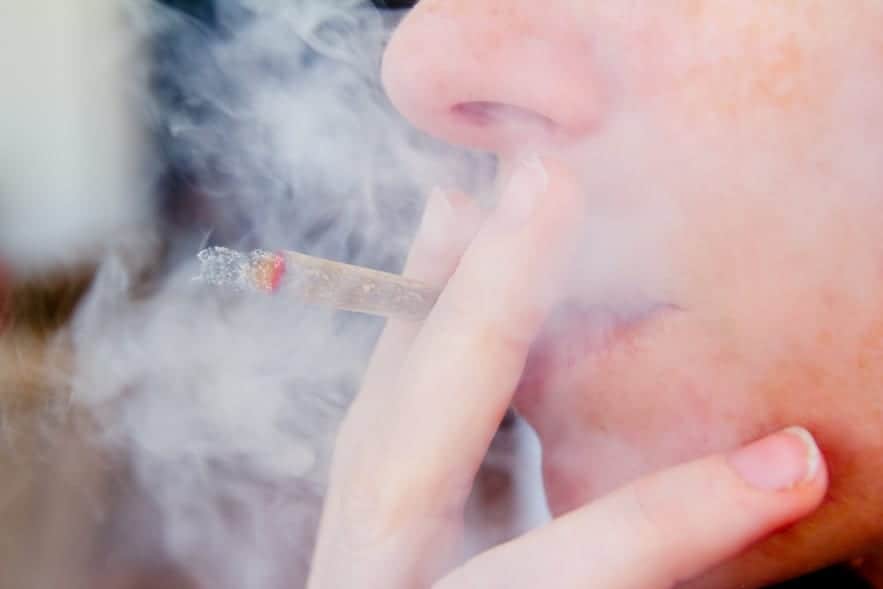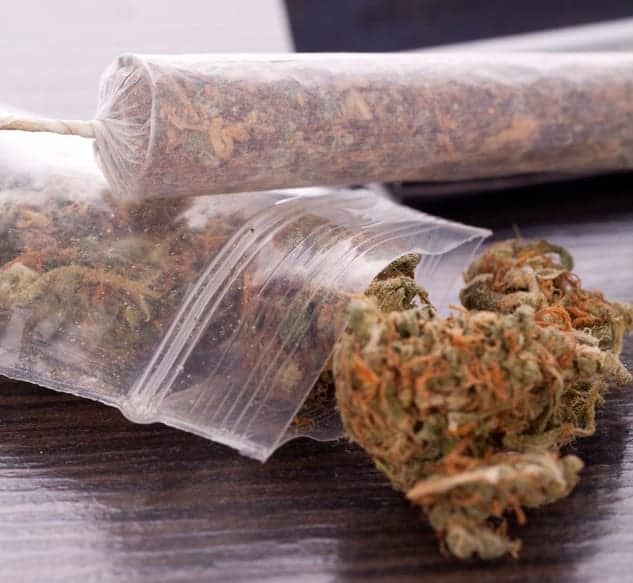There is no question that it can be difficult to maintain sobriety, particularly in the early stages of recovery, and weed addiction use in these stages could trigger relapse for those already in recovery for other types of substance abuse. Recovery requires a great deal of discipline for those looking to completely kick their drug habit or alcoholism to the curb. Between the stresses of everyday life, social pressure, and cues linked to the drug experience, anyone who has gone through recovery can tell you that maintaining willpower is one of the most important elements of rehabilitation. So what role does marijuana play in all of this, and can it serve as a trigger for marijuana relapse?
Can Marijuana Use Make Relapse More Likely For Those in Recovery?
The answer is relatively straightforward: cannabis can often lead to relapse, since it works as a trigger even for those who don’t use marijuana as their drug of choice. An article from US News & World Report drives this point home by quoting Anne Lewis, a clinical psychologist and addiction counselor: “People are more likely to seek their primary drug or alcohol when they are intoxicated or high. It lowers your inhibition, so you don’t care. We don’t make good decisions when we’re drunk or high.” The implication here is clear: no matter how ‘casual’ marijuana use can be, it can be an extremely dangerous trigger for those already working toward recovery from the effects of another drug (or even alcohol). Supporting complete abstinence during recovery is just one of the reasons why drug treatment is effective. If addiction compromises your ability to make good decisions, introducing another drug into your system cannot help you regain control, no matter how tempting marijuana use may be. In fact, using marijuana may only compound this loss of control, making relapse to your drug of choice a much more likely scenario. “Unlike other patients, people in recovery have a history of substance abuse – and using a potential addictive substance could be disastrous for those who are essentially in remission from their drinking problem or drug addiction. Using medical marijuana could wreck an alcoholic’s or addict’s recovery.” ~ US News & World Report This is not meant to incite undue fear among those in recovery. Practicing the healthy management strategies that you learn in recovery can help you stay away from relapse triggers, including marijuana. However, it is important to understand why and how relapse happens to those in recovery, and what role marijuana has in triggering relapse in many cases. 
Why Does Relapse Happen In the First Place?
Understanding relapse and why it happens to those in drug or alcohol recovery can help contextualize how marijuana can trigger relapse. Anyone who has been addicted to alcohol or drugs for an extended period of time is at risk of relapse. For those in recovery, this means returning to the choices and behaviors that they engaged in prior to starting recovery – including using their drug of choice or drinking alcohol, depending on the nature of their addiction. Addiction is a chronic disease, which means that it never completely goes away. For most addicts, once they’ve become exposed and addicted to a particular drug or to alcohol, they will always be at risk of becoming addicted again, or becoming addicted to a different substance. For this reason, there are a variety of factors involved in what occurs when a relapse takes place. No matter what stage of recovery you are in, returning to drugs or alcohol will nearly always be a temptation. This is just the nature of addiction, and why learning coping skills in recovery is so important. To help you recognize relapse when it occurs, some of the early warning signs for relapse include:
- Doubting your ability to stay sober, without telling anyway
- Deciding that you don’t need recovery to stay sober
- Avoiding talking about problems or issues with recovery
- Getting easily agitated or overreacting to stress
- Spending time with those who drink or use drugs
Choosing recovery is not a simple on/off switch; it requires daily reminders of self-worth, empowerment,, and the conscious choice to abstain. Similarly, relapse from recovery usually occurs in a cycle that begins in the mind and ends in drug or alcohol use. This cycle includes:
- The Emotional Stage: Facing addiction triggers or stressful situations that make cravings spike
- The Psychological Stage: Justifying the substance use, particularly after an extended period of recovery
- The Physical Stage: When drugs or alcohol are actually used if the previous two stages go unaddressed
These stages of relapse can be effectively managed, particularly when you are actively participating in a drug and alcohol rehab program. However, this is only the case if there is an active commitment to abstinence and sobriety. This commitment becomes much more difficult if alternative drugs are introduced to the body. In short, using marijuana can trigger a relapse for those already in recovery because it lowers one’s ability to manage the range of emotions, mental processes, and even physical actions that lead to relapse in the first place. 
How Can Marijuana Use Trigger Relapse for Those in Recovery?
There are several different reasons marijuana use represents a dangerous choice for those going through recovery from drug addiction or alcoholism. First, the main idea behind most addiction recovery programs is that participants completely abstain from taking drugs or drinking alcohol. Because of the nature of addiction, the alternative is just too unpredictable. To partake in drugs in any form is to lower your ability to withstand the triggers and pressures you are already likely to face throughout the recovery process as an addict. The second reason marijuana use can trigger relapse has to do with the growing nature of addiction as tolerance is built up. Marijuana use can open up those in recovery to new temptations that were not previously there. For those already susceptible to relapse, marijuana may be justified as an alternative to their drug of choice. This is a dangerous path to walk, since marijuana can be addictive and has detrimental effects if abused. “Alcoholism and addiction are progressive, so that means an alcoholic or addict who relapses will not be using the amounts of alcohol or drugs they were consuming when they stopped, but will take larger amounts, as if they had never stopped… Alcoholics and drug addicts in recovery who did not use marijuana could become addicted to the substance.” ~ US News & World Report The long and short of this is that marijuana use represents a danger of relapse for those going through recovery. While there are some legitimate medical uses for marijuana, recovering alcoholics or drug addicts are likely to face more harm than benefit through its use.
Get the Help You Need to Avoid Marijuana Triggering a Relapse
The takeaway point here is clear: if you are a recovering alcoholic or drug addict, you should avoid marijuana use altogether, with very few exceptions. One of the most important steps you can take in avoiding the powerful impact of marijuana on the recovery process is to reach out for support. Alcoholics Anonymous, Narcotics Anonymous, residential rehab facilities, and intensive outpatient treatment programs all help recovering alcoholics and drug addicts develop the skills and coping strategies to stay sober, no matter the circumstances. If you have experienced the way that marijuana can trigger a relapse during recovery, or if you still have questions, feel free to share a comment below.

